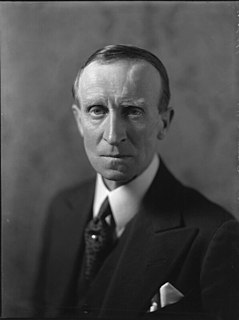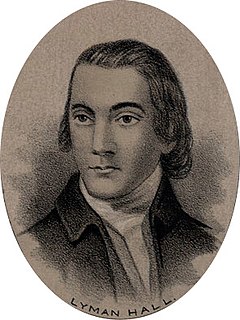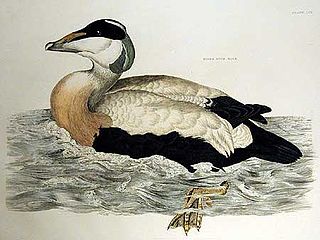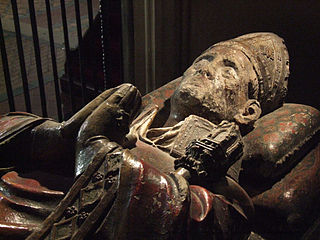
The University of Oxford is a collegiate research university in Oxford, England. There is evidence of teaching as early as 1096, making it the oldest university in the English-speaking world and the world's second-oldest university in continuous operation. It grew rapidly from 1167 when Henry II banned English students from attending the University of Paris. After disputes between students and Oxford townsfolk in 1209, some academics fled north-east to Cambridge where they established what became the University of Cambridge. The two English ancient universities share many common features and are jointly referred to as Oxbridge. Oxford is ranked among the most prestigious universities in the world.

John Buchan, 1st Baron Tweedsmuir was a British novelist, historian, and Unionist politician who served as Governor General of Canada, the 15th since Canadian Confederation.

Campion Hall is one of the six Permanent Private Halls of the University of Oxford in England. It is run by the Society of Jesus and named after St. Edmund Campion, a martyr and Fellow of St John's College, Oxford. The hall is located on Brewer Street, between Christ Church and Pembroke College. The buildings, along with many of the fixtures and fittings, were designed by Sir Edwin Lutyens, his only buildings in Oxford. The hall also houses an extensive and important collection of religious art spanning 600 years; the pieces were collected primarily by Fr. Martin D'Arcy in the 1930s.
William Courtenay was Archbishop of Canterbury (1381–1396), having previously been Bishop of Hereford and Bishop of London.

Lyman Hall was a Founding Father of the United States, physician, clergyman, and statesman who signed the United States Declaration of Independence as a representative of Georgia. Hall County is named after him. He was one of four physicians to sign the Declaration of Independence, along with Benjamin Rush, Josiah Bartlett, and Matthew Thornton.

Prideaux John Selby FRSE FLS was an English ornithologist, botanist and natural history artist.
Edward Hall was an English lawyer and historian, best known for his The Union of the Two Noble and Illustre Families of Lancastre and Yorke—commonly known as Hall's Chronicle—first published in 1548. He was also several times a member of the Parliament of England.

St Mary Hall was a medieval academic hall of the University of Oxford. It was associated with Oriel College from 1326 to 1545, but functioned independently from 1545 until it was incorporated into Oriel College in 1902.

William Smyth was Bishop of Coventry and Lichfield from 1493 to 1496 and then Bishop of Lincoln until his death. He held political offices, the most important being Lord President of the Council of Wales and the Marches. He became very wealthy and was a benefactor of a number of institutions. He was a co-founder of Brasenose College, Oxford and endowed a grammar school in the village of his birth in Lancashire.

Sir David Roxbee Cox was a British statistician and educator. His wide-ranging contributions to the field of statistics included introducing logistic regression, the proportional hazards model and the Cox process, a point process named after him.
Richard Courtenay was an English prelate and university chancellor, who served as Bishop of Norwich 1413-15.

Classical music of the United Kingdom is taken in this article to mean classical music in the sense elsewhere defined, of formally composed and written music of chamber, concert and church type as distinct from popular, traditional, or folk music. The term in this sense emerged in the early 19th century, not long after the United Kingdom of Great Britain and Ireland came into existence in 1801. Composed music in these islands can be traced in musical notation back to the 13th century, with earlier origins. It has never existed in isolation from European music, but has often developed in distinctively insular ways within an international framework. Inheriting the European classical forms of the 18th century, patronage and the academy and university establishment of musical performance and training in the United Kingdom during the 19th century saw a great expansion. Similar developments occurred in the other expanding states of Europe and their empires. Within this international growth the traditions of composition and performance centred in the United Kingdom, including the various cultural strands drawn from its different provinces, have continued to evolve in distinctive ways through the work of many famous composers.

John Sheppey was an English administrator and bishop. He served as treasurer from 1356 to 1360. Little is known of his family and background. A Benedictine, he was ordained deacon in 1318, and later studied at Oxford. Later he became involved in royal government, and was made bishop of Rochester on 22 October 1352. He was consecrated on 10 March 1353. He died on 19 October 1360, and was buried in Rochester Cathedral at the altar of St John the Baptist. As his will shows, he was a friend of his predecessor in the treasury, William Edington.

Robert de Stratford was an English bishop and was one of Edward III's principal ministers.

John Norman Davidson Kelly was a British theologian and academic at the University of Oxford and Principal of St Edmund Hall, Oxford, between 1951 and 1979, during which the hall transformed into an independent constituent college of the university and later a co-educational establishment.
John Williams was Principal of Jesus College, Oxford, from 1602 to 1613 and also Dean of Bangor.
John of Pontoise was a medieval Bishop of Winchester in England.
John Cotterell DCL was an English clergyman and academic at the University of Oxford, who was one of the founding fellows of Jesus College, Oxford.
Sir Kenneth Clinton Wheare, CMG was an Australian academic, who spent most of his career at Oxford University in England. He was an expert on the constitutions of the British Commonwealth. He advised constitutional assemblies in former British colonies.

Eric John Dingwall (1890–1986) was a British anthropologist, psychical researcher and librarian.












